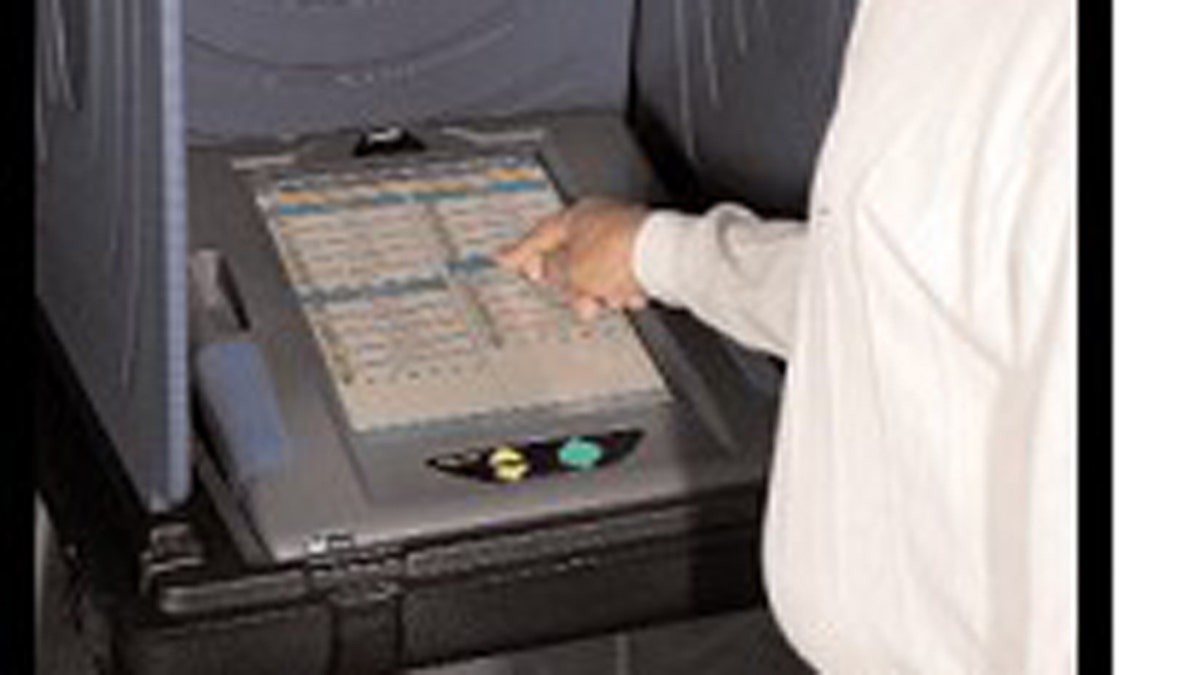
An iVotronic voting machine.
Early monitoring of voting around the country is raising concerns about electronic voting machines in key battleground states -- especially in Pennsylvania, where machines are registering Democratic votes instead of Republican, and vice versa.
According to Pamela Smith, who heads the Election Protection Command Center, a national non-profit, non-partisan vote monitoring organization, early results from volunteers around the country and from voters who call a toll-free number (1-866 OUR VOTE) show that reports of vote flipping and other problems are already severe enough to “cause concern.”
Smith said problems with iVotronic machines have cropped up in Pennsylvania’s Lawrence County, where voters trying to vote a straight party ticket registered their votes for another party – in essence, flipping the votes.
In these cases, voters tap one spot on the touch screen and another lights up. “It is like when you use an ATM and hit withdraw and check balances lights up,” said Susan Greenhalgh of Verified Voting, a nonprofit organization that advocates reliable and publicly verifiable elections.
“In one case a voter called the poll worker in to help, and neither could get the machine to vote properly,” Smith said.
There has been concern in the past few weeks over the security and reliability of the iVotronic touch screen voting machines. Reports from Texas, West Virginia and other states have found that the machines can misclassify votes, and a recent report by former CBS News anchor Dan Rather showed that the machines are constructed in the Philippines under “sweatshop conditions” that cause malfunctions.
In North Carolina, the state Republican Party has sued to force election workers to notify all voters of problems with the machines, preserve all ballots and personal electronic programs and have voting officials keep detailed records of all complaints at voting stations.
Chief among the GOP concerns was that the machines were shifting votes for Republicans into the Democratic line. Because the Democrats have the top spot on the voting pad, anything from the slight touch of the touch screen above the Republican mark to outright manipulation could be to blame.
Smith said the biggest concern so far is the problem of calibration, which can lead to vote flipping. She said it was too early to call the problems with the machines a crisis, but she said they were troubling.
She said the center also was seeing problems in Houston, Philadelphia and Fairfax County in Virginia.
In Houston, which had virtually all of its voting machines destroyed in a fire this year, long lines were forming and indications were that the effort to replace the machines hadn’t met voter demand. Houston ranks behind Los Angeles as the second largest voting district in the nation, and it is the key to the Republican majority in Texas.
In Fairfax County, a bellwether district that often determines which way Virginia goes electorally, there are reports that electronic voting machines had switched to the federal ballot, dropping local candidates from the ballot altogether.
In Philadelphia, which often provides Pennsylvania's Democratic candidates their pluralities, older electronic voting machines have been breaking down, and poll workers do not have or are not giving out emergency paper ballots.












































